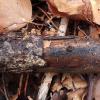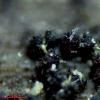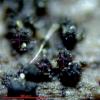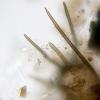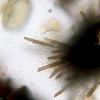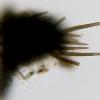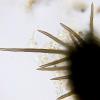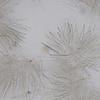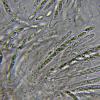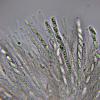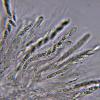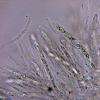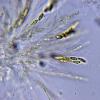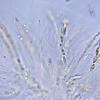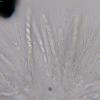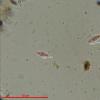
15-02-2026 04:32
One more specimen that is giving me some descent a

17-02-2026 17:26
 Nicolas Suberbielle
Nicolas Suberbielle
Bonjour à tous, Je recherche cette publication :

08-12-2025 17:37
 Lothar Krieglsteiner
Lothar Krieglsteiner
20.6.25, on branch of Abies infected and thickened

17-02-2026 13:41
Isabelle CharissouBonjour, est-ce que quelqu'un pourrait me fournir

16-02-2026 18:34
 Thierry Blondelle
Thierry Blondelle
Bonjour,La micro de cet anamorphe de Hercospora su

16-02-2026 21:25
 Andreas Millinger
Andreas Millinger
Good evening,failed to find an idea for this fungu

16-02-2026 17:14
Joanne TaylorLast week we published the following paper where w

16-02-2026 16:53
Isabelle CharissouBonjour, quelqu'un pourrait-il me transmettre un
¿Capronia?
Josep Torres,
23-12-2024 14:37
Some tiny globose black ascomata found on December 1st in a beech forest, although the trunk is most likely Pinus sylvestris, as they appeared next to some specimens of Hyalocypha aureliella, a very common ascomycete on this type of wood.
Ascomata with a size of only (123.9) 129.8 - 155.1 (171.2) × (115.5) 125.5 - 149.9 (152.8) µm. not counting the hairs.
Brown hairs with thick walls, with one to four septa, measuring (25.4) 27.6 - 66.2 (90.9) µm., with a width at their base of (3.1) 3.2 - 4.6 (4.9) µm.
Asci are octosporic, inamyloid in Melzer form, measuring (63.5) 70.3 - 80.2 (84.2) × 4.9 - 6.9 (7.2) µm.
Few free spores observed, these hyaline spores, with a septum, with a constriction in it and with measurements of (9.5) 9.7 - 10.5 (11) × (3.3) 3.33 - 3.6 (4) µm., measurements practically identical to the mature spores inside the ascus, these spores inside the ascus with measurements of:
(9.1) 9.3 - 10.4 (10.8) × (3.2) 3.3 - 3.8 (3.9) µm
Q = (2.4) 2.6 - 3 (3.2) ; N = 32
Me = 9.8 × 3.6 µm ; Qe = 2.8
Given its characteristics, I am thinking of Capronia, although I cannot find any of the Keys to the genus that I have available that fit my proposal, and since I have seen something in some images that could correspond to paraphysis, I have even begun to doubt the genus.
Any suggestion from you will be well received.
Thank you very much in advance.
Greetings and Merry Christmas.
Josep Torres,
25-12-2024 12:13
Re : ¿Capronia?
Hello.
Any suggestions.
Since the Keys to Capronia are not leading me anywhere, could it be possible that with this spore morphology and its measurements it could be Helminthosphaeria?
Best regards and Merry Christmas.
Any suggestions.
Since the Keys to Capronia are not leading me anywhere, could it be possible that with this spore morphology and its measurements it could be Helminthosphaeria?
Best regards and Merry Christmas.
Thomas Læssøe,
29-12-2024 13:03
Re : ¿Capronia?
Capronia species have bitunicatae asci, so this genus is excluded since the asci in your fungus are unitunicate with a small refractive annulus. Helminthosphaeriaceae is a possibility as you imply.
happy new year
happy new year
Josep Torres,
30-12-2024 08:20
Re : ¿Capronia?
Thanks Thomas.
In any case, I'm already saving it in my files as Helminthosphaeria sp.
Happy New Year.
In any case, I'm already saving it in my files as Helminthosphaeria sp.
Happy New Year.

